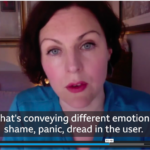Should traditional creative companies be learning more from tech?
In my forthcoming book Running a Creative Company in the Digital Age I talk to forward thinking creative tech investors, MDs and CEOs about what a thriving business means today.
Something that has come across is a continuing difference in attitude between aspiring entrepreneurs in the traditional creative industries such as film and TV, where my experience is, and creative tech start-ups.
As John Spindler, CEO of Capital Enterprise, says in the book:
“ In most creative businesses, the number one guiding principle is to create something that will get critical acclaim – and in marketing terms, to create a brand which will allow for more work. Only once they get established, which for most creatives is mid-career, 5-10 years in, do they look at it from the perspective of a business i.e. have I got anything here that can live outside my personality and creative talent and is repeatable, replicable and scaleable”.
And for Laura Franses, head of the Channel 4 Growth Fund which helps TV and film start ups grow into solid viable businesses by taking a minority stake, scalability is key. I talk to Laura and she explains that the Growth Fund have been scouring the UK for companies outside of England that both need their help, and are scalable. Laura says: “We have consistently been looking outside of England but what we haven’t found yet is a company that needs our help and that can scale – we found some smaller ones but not ones that are on a growth trajectory”
So in the digital age where so many platforms merge and so much content is inter-dependent, why aren’t more small film and TV start-ups thinking big, or partnering up with creative tech to corner markets like Virtual and Augmented Reality, and Artificial Intelligence? The creative potential for these platforms is huge.
I talk to Jake Dubbins, co-founder and MD of thriving digital brand entertainment agency Media Bounty. Jake explains how the digital revolution has changed to the way we produce and consume creative content:
“It’s now changed to the point where platform is becoming irrelevant. If you produce good content that is then optimised for platforms, that’s the trick. The mobile is where people now consume a lot of content – a certain demographic don’t watch traditional broadcast TV anymore so whether you’re making TV film or short form ads it’s about the quality of the content then getting it distributed to (the right) people”
Charlie Price, founder and CEO of creative tech company Mini Screen Pictures, describes his own journey from TV development through the start up funding jungle and how his partnership with a key technology expert was a breakthrough moment for his young company.
The FANGS – Facebook, Amazon, Netflix, Google – constantly tell their staff to keep thinking about the innovative. They manage to keep entrepreneur capitalism as their model, rather than the traditional rentier model of making money off existing assets. Many creative ventures are still using the rentier business model in an age where entrepreneur capitalism means an ongoing relationship with the buyer and the client. Innovative businesses today are asking how they can use the premium model of hooking a client, and then establishing a fertile long term collaborative relationship over time – so that everyone rides the tide wave of digital innovation together.





